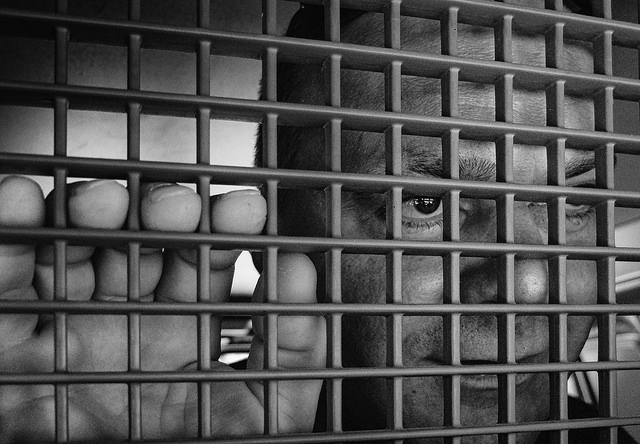By Meg Tully
MarylandReporter.com
A man shot in Silver Spring recently is a stark example of the importance of police training in responding to those in mental health crisis, says the incoming vice chair of the Maryland Senate’s Judicial Proceedings Committee.
Responding to a report by the National Conference of State Legislatures about mental health and the criminal justice system, Sen. Will Smith, D-Montgomery, said more effective initial encounters with people in mental health crisis and offering pretrial services are two ways in which the state and local governments need to act.
The NCSL report calls for “codifying specialized training requirements for law enforcement on how to respond to mental health, substance use and behavioral disorder issues” as well as “funding for community-based mental health services such as crisis stabilization units designed to reroute individuals prior to entry into the justice system,” among other recommendations.
In the Silver Spring case, the man was unarmed and got into an altercation with the officer, who shot him multiple times and was later cleared of wrongdoing.
“Although the officer, according to the investigation, acted according to standards of the department in terms of engaging with deadly force, I think that was a missed opportunity to have us to have had someone with crisis intervention training engage an individual first and maybe it could have prevented a loss of life,” Smith said.
In Maryland, mental health and the criminal justice system has come before his committee every year, he said.
“I think that all of us have an interest in decriminalizing and not having someone sit in a jail cell for a crisis that they may be going through,” Smith said.
About a quarter of state inmates have a mental illness
The Maryland Department of Public Safety and Correctional Services diagnosed 5,200 inmates with mental illness in 2017, of which 1,500 inmates had a serious mental illness as defined by state code, according to department spokesman Gerard Shields in an email.
That is about 25% of the total 20,500 population of inmates and detainees statewide under the department’s jurisdiction, he said. Those classified with serious mental illnesses make up about 7% of the population.
The report released this month by the nonpartisan National Conference of State Legislatures estimates the percentage of seriously mentally ill inmates could be even higher – about four to six times higher than the general population, or about 2 million nationally in local jails.
With the longtime national movement to deinstitutionalize mental health treatment, community services couldn’t keep up with demand and people with mental health needs ended up in jails.
“Recent actions in state legislatures reflect growing bipartisan cooperation to divert and treat individuals with mental illness who are under correctional control or are at risk of coming into contact with the justice system,” the report states. “Moving forward there is an opportunity for lawmakers to reduce use of jails to house the mentally ill, while also creating a more fair and just criminal justice system.”
Broad approach to diversion
The report calls for a broad approach to diverting the mentally ill from jails, at every point from the first law enforcement officer to respond to helping people released from jail and on probation.
For instance, the report said six states — California, Connecticut, Indiana, Mississippi, Nevada and Washington — have statutorily created pretrial diversion programs for individuals identified as having a mental illness.
Another 37 states have pretrial diversion programs that can be used for people with mental health needs, the report states.
The report also recognizes mental health courts, where offenders are offered the option of completing treatment plans instead of jail time, as another successful way to help them. It said studies suggest they also result in less recidivism.
Mental health courts in some Maryland jurisdictions
Maryland is one of 20 states that has mental health courts in some jurisdictions, including Baltimore City. Baltimore also has an early diversion program run by the Medical Services Division of the Circuit Court to serve adults with mental illness involved in the criminal justice system to help them live stably in the community.
Such initiatives are not always easy – or cheap – to implement.
In Maryland, judges have complained that the state’s psychiatric hospitals are taking too long to comply with court orders to take custody of inmates deemed “not competent to stand trial” or “not criminally responsible.” This results in people languishing in jail instead of getting immediate treatment.
This year the legislature passed a bill which goes into effect Oct. 1 that will require the state to accept custody of those inmates with 10 days.
State adds more beds
The Maryland Department of Health has added nearly 100 beds to the Behavioral Health Administration, according to a statement from spokeswoman Brittany Fowler. The administration also established a centralized admissions protocol to improve access to inpatient services. All court-ordered placements for May, June and July were placed within an average of 10 days, she said.
The Department of Public Safety and Correctional Services is considering using a national standard program Level of Service Inventory – revised to access treatment needs for offenders. Currently prisoners are assessed for medical and mental health services as well as a suicide risk evaluation at pretrial and sentencing, but the state does not yet follow the revised Level of Service Inventory, Shields said.
DPSCS recently entered into a new contract for a mental health provider with the intent of expanding psychiatric hours and adding new nurses. It started in January and is for $155 million over six years, according to Shields.
Parole officers are also among those who receive crisis intervention training, the types of training for law enforcement that the report recommends. The health department also coordinates such crisis intervention teams and training with local law enforcement.
Justice Reinvestment Act could infuse funds
Another way in which Maryland is hoping to treat more people with mental illness instead of incarcerating them is by investing in services and community health.
Del. Kathleen Dumais, D-Montgomery, the current vice chair of the House Judiciary Committee and member of the Justice Reinvestment Oversight Board, said that a major overhaul of the state’s criminal justice system may open doors to more community programs, including those in mental health and drug addiction treatment.
The Justice Reinvestment Act went into effect last October and should reduce the incarceration for nonviolent offenses and will allow more people to be paroled, resulting in fewer people in jails. The savings are planned to go to grants for programs including substance abuse and mental health treatment, specialty courts, and pretrial improvements.
The state is still working to track the savings, and she does not anticipate having any numbers that estimate savings until October at the earliest.
Dumais, who is set to become House majority leader in January, is hopeful these changes could do more to keep nonviolent offenders out of jail – people coming to the attention of police for things like loitering, appearing inebriated, or trespassing.
She said local law enforcement has also been making strides addressing these issues.
Still, she knows as an attorney in family law that not everyone complies with treatment. And sometimes it can be hard to find housing for people with mental health problems because people don’t want it located near them in the community.
“These individuals don’t need just to be detained they need to be getting treatment with community help, having people help them find jobs, giving them the access to mental health professionals whether it be for medication or therapy,” Dumais said. “Across the board in the criminal justice arena, this is the direction we’re all moving towards.”
Smith said the Senate has those same goals to invest in pretrial services that will help people before they are incarcerated.
“We save our state millions of dollars, we ensure the person is back on track living a fulfilling life and it makes our society safer because they’re getting the treatment and the help that they need,” Smith said. “It’s something we’re making great progress on but it’s something we need to keep working on.”





Recent Comments